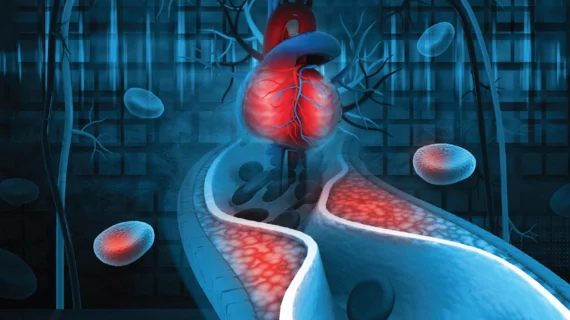American College of Cardiology shares new guidance for treating ASCVD patients with elevated triglycerides
A new American College of Cardiology (ACC) expert consensus decision pathway (ECDP) highlights specialist recommendations on statin and triglyceride non-statin treatment options for the management of high-risk atherosclerotic cardiovascular disease (ASCVD) patients with continuous hypertriglyceridemia.
The ECDP, published July 28 in the Journal of the American College of Cardiology, expands on the 2018 AHA/ACC guideline on the management of cholesterol, and includes information based on the recently published REDUCE-IT trial.
"After maximizing LDL-C lowering therapy, triglyceride lowering therapies may be considered to further lower ASCVD risk in patients with persistent hypertriglyceridemia," writing committee chair Salim S. Virani, MD, PhD, director of the Cardiovascular Disease Fellowship Training Program at Baylor College of Medicine, and colleagues said in a prepared statement. "Therapies that have been demonstrated to improve cardiovascular outcomes in primary and secondary prevention are preferred, keeping in mind net benefit (balance of risk and harms) of those therapies."
The goal of the ACC panel was to address issues related to the use of statins and triglyceride risk-based non-statin therapies in patients with persistent hypertriglyceridemia including: defining persistent hypertriglyceridemia, addressing the role of lifestyle intervention before considering triglyceride risk-based non-statin therapies, identifying the role of statin therapy in patients with persistent hypertriglyceridemia, recognizing what patient populations should triglyceride risk-based non-statin therapies be considered and choosing the most effective triglyceride risk-based non-statin therapies.
The ECDP also stresses that lifestyle choices such as a heart-healthy diet, consistent physical activity, non-tobacco use, minimal alcohol consumption and maintaining a healthy weight level are key in reducing the risk of ASCVD.
“Use of medical nutrition therapy and leveraging all members of the cardiovascular team, including dietitians, are important in the management of persistent hypertriglyceridemia,” the authors said in the same statement.
See the full ECDP here.
